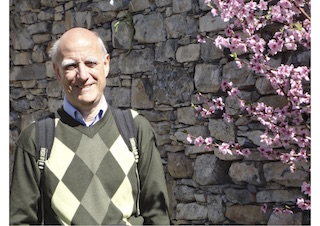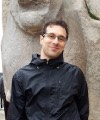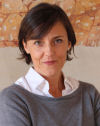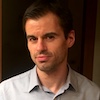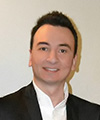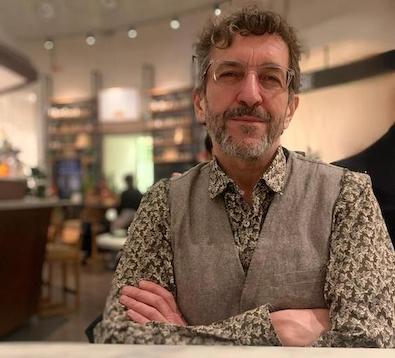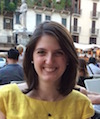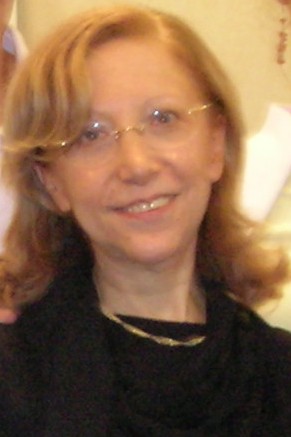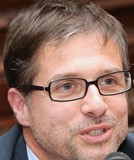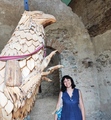Studying at the University of Verona
Here you can find information on the organisational aspects of the Programme, lecture timetables, learning activities and useful contact details for your time at the University, from enrolment to graduation.
Academic calendar
The academic calendar shows the deadlines and scheduled events that are relevant to students, teaching and technical-administrative staff of the University. Public holidays and University closures are also indicated. The academic year normally begins on 1 October each year and ends on 30 September of the following year.
Course calendar
The Academic Calendar sets out the degree programme lecture and exam timetables, as well as the relevant university closure dates..
| Period | From | To |
|---|---|---|
| Semestrino IA | Sep 28, 2015 | Nov 14, 2015 |
| Semestrino IB | Nov 16, 2015 | Jan 16, 2016 |
| Semestrino IIA | Feb 22, 2016 | Apr 16, 2016 |
| Semestrino IIB | Apr 18, 2016 | Jun 4, 2016 |
| Session | From | To |
|---|---|---|
| Sessione invernale | Jan 18, 2016 | Feb 20, 2016 |
| Sessione estiva | Jun 6, 2016 | Jul 30, 2016 |
| Sessione autunnale | Sep 1, 2016 | Sep 30, 2016 |
| Session | From | To |
|---|---|---|
| Sessione estiva | Jul 5, 2016 | Jul 6, 2016 |
| Sessione autunnale | Nov 22, 2016 | Nov 23, 2016 |
| Sessione invernale | Apr 3, 2017 | Apr 8, 2017 |
| Period | From | To |
|---|---|---|
| Festa di Ognissanti | Nov 1, 2015 | Nov 1, 2015 |
| Festa dell'Immacolata | Dec 8, 2015 | Dec 8, 2015 |
| Vacanze di Natale | Dec 23, 2015 | Jan 6, 2016 |
| Vancanze di Pasqua | Mar 24, 2016 | Mar 29, 2016 |
| Festa della Liberazione | Apr 25, 2016 | Apr 25, 2016 |
| Festa dei Lavoratori | May 1, 2016 | May 1, 2016 |
| Festa del S. Patrono S. Zeno | May 21, 2016 | May 21, 2016 |
| Festa della Repubblica | Jun 2, 2016 | Jun 2, 2016 |
| Vacanze estive | Aug 8, 2016 | Aug 15, 2016 |
Exam calendar
Exam dates and rounds are managed by the relevant Culture and Civilisation Teaching and Student Services Unit.
To view all the exam sessions available, please use the Exam dashboard on ESSE3.
If you forgot your login details or have problems logging in, please contact the relevant IT HelpDesk, or check the login details recovery web page.
Should you have any doubts or questions, please check the Enrollment FAQs
Academic staff
 angela.alaimo@univr.it
angela.alaimo@univr.it
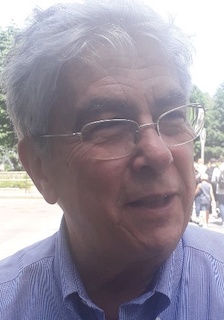
Avezzu' Guido
 guido.avezzu@univr.it
guido.avezzu@univr.it
 augusto.barbi@univr.it
augusto.barbi@univr.it

Bassetti Massimiliano
 massimiliano.bassetti@univr.it
massimiliano.bassetti@univr.it
 045802 8376
045802 8376
 evita.calabrese@univr.it
evita.calabrese@univr.it
Carnero Roberto
 roberto.carnero@univr.it
roberto.carnero@univr.it
 alberto.cavarzere@univr.it
alberto.cavarzere@univr.it

Chiecchi Giuseppe
 giuseppe.chiecchi@univr.it
giuseppe.chiecchi@univr.it
 +39 045802 8117
+39 045802 8117
 federica.gonzato@univr.it
federica.gonzato@univr.it
 elisa.lerco@univr.it
elisa.lerco@univr.it
 francesco.lupi@univr.it
francesco.lupi@univr.it

Mastrocinque Attilio
 attilio.mastrocinque@univr.it
attilio.mastrocinque@univr.it
 +39 045802 8386
+39 045802 8386
 flavia.palma@univr.it
flavia.palma@univr.it
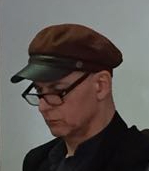
Pasini Roberto
 pasini.roberto@univr.it
pasini.roberto@univr.it
 +39 045802 8121
+39 045802 8121
Peresani Marco
 dino.piovan@univr.it
dino.piovan@univr.it
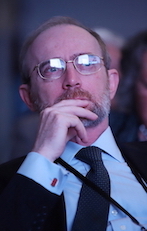
Pozzo Riccardo
 riccardo.pozzo@univr.it
riccardo.pozzo@univr.it
 +390458028053
+390458028053
 alberto.scandola@univr.it
alberto.scandola@univr.it
Tani Stefano
 stefano.tani@univr.it
stefano.tani@univr.it
 +39 045802 8110
+39 045802 8110
 sonia.trovato@univr.it
sonia.trovato@univr.it
 gianmaria.varanini@univr.it
gianmaria.varanini@univr.it
Study Plan
The Study Plan includes all modules, teaching and learning activities that each student will need to undertake during their time at the University.
Please select your Study Plan based on your enrollment year.
1° Year
| Modules | Credits | TAF | SSD |
|---|
2° Year activated in the A.Y. 2016/2017
| Modules | Credits | TAF | SSD |
|---|
Latin literature (i)
3° Year activated in the A.Y. 2017/2018
| Modules | Credits | TAF | SSD |
|---|
| Modules | Credits | TAF | SSD |
|---|
| Modules | Credits | TAF | SSD |
|---|
Latin literature (i)
| Modules | Credits | TAF | SSD |
|---|
| Modules | Credits | TAF | SSD |
|---|
Legend | Type of training activity (TTA)
TAF (Type of Educational Activity) All courses and activities are classified into different types of educational activities, indicated by a letter.
History and Criticism of the Cinema (i) (2017/2018)
Teaching code
4S01234
Teacher
Coordinator
Credits
6
Also offered in courses:
- Semiology of the Cinema (i) of the course Bachelor’s degree in Cultural Heritage
Language
Italian
Scientific Disciplinary Sector (SSD)
L-ART/06 - CINEMA, PHOTOGRAPHY AND TELEVISION
Period
Second half of Semester 1 dal Nov 13, 2017 al Jan 20, 2018.
Learning outcomes
Knowledge of the history of cinema and the method of analysis of the film. The course aims to provide students with the fundamental cornerstones of the history of cinema, which will be re-read in light of the relationship between the evolution of filmic language and the cultural transformations of society. The student will learn the basics of the audiovisual language and must be able to contextualize a particular film in the historical period in which the film was produced, demonstrating not only historical knowledge, but also the ability to process this knowledge in a well-written and argued synthesis . The aim of this course, in conclusion, is to provide the student with the possibility of acquiring the historical, linguistic and theoretical foundations for decoding, interpreting and analyzing not only the mainstream or authorial cinematographic production, but also all audiovisual products of contemporary visual culture.
Program
After a general introduction to the history of cinema, the course - in the second part - will focus on the theme of the actor in contemporary Italian cinema. How do our antidives build their divine image? Is there really a national style of acting based on a mediocre aura? Which are the most interesting interpreters? .. The figures and works of Stefano Accorsi, Filippo Timi, Kim Rossi Stuart, Jasmine Trinca, Valeria Golino etc. will be considered.
REFERENCES:
*Appunti delle lezioni
*G. Carluccio, L. Malavasi, F. Villa, Il cinema. Percorsi storici e questioni teoriche, Carocci, 2015.
*Giaime Alonge,Il cinema: tecnica e linguaggio. Un'introduzione, Kaplan 2010.
* Andrea Minuz, Pedro Armocida, L'attore nel cinema contemporaneo. Storia, performance, immagine, Marsilio, 2017
| Author | Title | Publishing house | Year | ISBN | Notes |
|---|---|---|---|---|---|
| Giulia Carluccio, Luca Malavasi, Federica Villa | IL CINEMA. PERCORSI STORICI E QUESTIONI TEORICHE | CAROCCI | 2015 | ||
| GIAIME ALONGE | Il cinema: tecnica e linguaggio. Un'introduzione | KAPLAN | 2015 | ||
| Andre Minuz, Pedro Armocida | L'attore nel cinema italiano contemporaneo. Storia, performance, immagine | Marsilio | 2017 |
Examination Methods
Written exam: three open questions. The student must demonstrate mastery of the elements of film language, knowledge of the main junctions of film history and the ability to analyze the film texts in the program. YOU AGREE THAT YOU MAY HAVE TO BE TAKEN UP TO 5 MIN BEFORE THE END OF THE TEST, BUT ONE TIME DELIVERED THE TASK WILL NOT BE REFUSED BY THE VOTE.
Type D and Type F activities
Modules not yet included
Career prospects
Module/Programme news
News for students
There you will find information, resources and services useful during your time at the University (Student’s exam record, your study plan on ESSE3, Distance Learning courses, university email account, office forms, administrative procedures, etc.). You can log into MyUnivr with your GIA login details: only in this way will you be able to receive notification of all the notices from your teachers and your secretariat via email and soon also via the Univr app.
Graduation
List of theses and work experience proposals
| theses proposals | Research area |
|---|---|
| tesi di Glottologia, Storia comparata, Linguistica storica | ENGLISH LANGUAGE - Grammar and Syntax – Grammatik und Syntax |
| tesi di Glottologia, Storia comparata, Linguistica storica | GERMANIC LANGUAGE - Dialectology - Dialektologie |
| tesi di Glottologia, Storia comparata, Linguistica storica | HUMANITIES & SOCIAL STUDIES - HUMANITIES & SOCIAL STUDIES |
| tesi di Glottologia, Storia comparata, Linguistica storica | Indo-European languages & literatures - Indo-European languages & literatures |
| tesi di Glottologia, Storia comparata, Linguistica storica | LINGUISTICS - LINGUISTICS |
| Stage | Research area |
|---|---|
| Lavorare in archivio | Various topics |
| L'iter del libro in biblioteca | Various topics |
Gestione carriere
Linguistic training CLA
Student mentoring
Requisiti classi di abilitazione insegnamento
Requisiti necessari per accedere alle classi di abilitazione per l'insegnamento.
vedi allegato pdf
Inoltre, per informazioni sui 24 CFU nelle discipline antropo-psico-pedagogiche e nelle metodologie e tecnologie didattiche, si veda -> LINK
Documents
| Title | Info File |
|---|---|
|
|
pdf, it, 307 KB, 30/11/21 |








